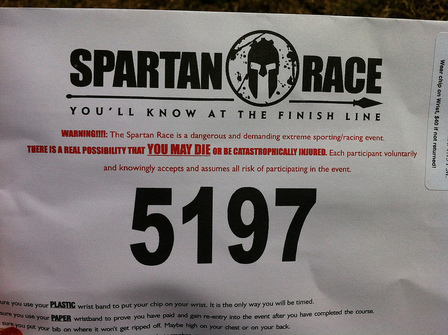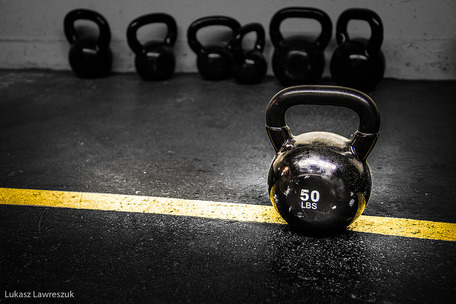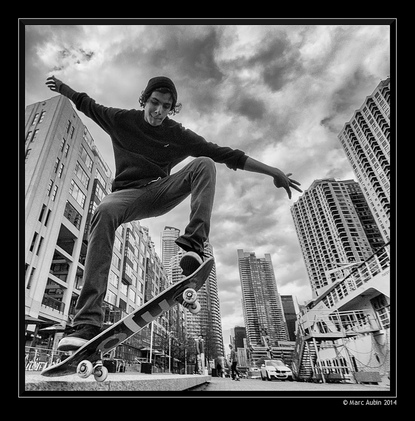|
What stories have you been telling yourself? The story of “I’m too young,” “I’m too old,” “I’m uneducated,” or “I don’t have enough experience”? You will live whatever story you tell yourself, so make sure you’re telling yourself an inspiring one. Stories express meaning stronger than logical arguments and lawful formulations. Stories are the vehicles people use to give meaning to their experiences. And how you give meaning to or interpret your experiences will direct your life. No matter what you set out to do, achieving your goal will require stories. The key is to create positive and productive stories in line with your new direction in life. Your aim is to align your story with your priorities and purpose. You will never fulfill a good purpose by living a bad story. Not only can you program your mind with a story—you can program someone else’s mind. You will never fulfill a good purpose by living a bad story. Eventually, I recognized the bad stories playing in my head and decided to create a new story: “You are new and fresh to this field, which means you have more enthusiasm and can think outside the box more easily. Every question you don’t know the answer to is a chance to learn and enhance your expertise. You are already successful in this situation. Not only can you program your mind with a story—you can program someone else’s mind. A study at Princeton University found that when two people communicate through storytelling, neural activity becomes almost synchronous: the listener’s brain activity mirrors that of the speaker’s brain with a one-second lag.11 Another study from the University of Missouri has shown that storytelling improves communication skills and prevents disease progression in patients with Alzheimer’s and other forms of dementia. Storytelling is also used as a form of psychotherapy called narrative therapy.13 It’s based on narrative psychology, a viewpoint asserting that human beings shape their lives with stories. Narrative therapists work with their patients to develop better stories. In this process, a narrative therapist asks a patient questions to generate vivid descriptions of the patient’s life events. The key is that the therapist will only ask questions that prompt positive descriptions not currently included in the plot of the patient’s problematic story. This process helps people increase happiness and improve self-confidence by giving them happier, more empowering stories to live out. Narrative therapy has been shown to effectively treat a variety of psychological disorders, including major depression and anorexia. Achieve your biggest goals in life by being the hero of your story, not the spectator, loser, or victim. Instead of seeing yourself as a grunt struggling uphill against the world, start seeing yourself as an adventurer, teacher, and connector of ideas and people. Actively choose the stories influencing your life and be the hero.Be aware of what stories you identify with and how they may be influencing your own. If your story is not inspiring you, it’s time to change it. Seize the pen. It’s time to get real. It’s time to write a new story for your life. This story will be something that generations of people will read and be inspired by. This story will be bold, strong, and meaningful. This is your story. Before you begin, find a place where you can be completely alone. You need to be alone so you are not influenced by any feelings of guilt, insecurity, or embarrassment. Realize other people’s expectations can limit you mentally, even from a distance. When you are ready, start reflecting on the times in your life when you felt the most inspired. Black Hole Focus: How Intelligent People Can Create a Powerful Purpose for Their Lives
1 Comment
Pain serves a purpose, though. It keeps us from touching hot stoves, from stabbing ourselves with forks when we eat, from biting our tongues off, and from otherwise injuring ourselves. If we didn’t know pain, we would never be satisfied with simple pleasures such as eating, resting, and living.
Learn to Dose Your Pain Here’s a quick checklist for internalizing the process of the “dosing of pain,” the proper management of time, and the fast decision-making of the Rule of Upside Downside. Realize that time is the most precious asset we have. Once you truly understand this, you learn how to make sure you don’t waste any. All of your time is used in a way that maximizes the achievement of your goals. Understand that time passes whether we like it or not. Every second another second is gone. When you truly understand that, it helps you in those moments when you’re uncomfortable. You know you can handle it if it’s for a greater good. Why does quick decision making matter here? You don’t want to waste more time than required in making decisions. This will sound harsh but none of us know if we will be here one minute from now. If you understand that, you won’t want to waste time being unproductive. If you can make accurate decisions quickly, you have time to enjoy the fruits of those decisions. I always try to look at the upside versus the downside of each decision. You should value: Health first Family second Business third Fun fourth I’ll trudge through endurance events for days on end, but I’ll make trivial and life-changing decisions alike on a dime. While this may seem contradictory, it reflects another aspect of the Spartan-ness. We are decisive, but we’re more than that. We are decisive fast. To “Spartan up!” you must decide things quickly. Wait too long, and you’ll lose. If you are losing, lose fast, get it over with, move over, and start winning. It’s a lesson I learned on Wall Street many times: sometimes you need to cut your losses quickly so you’re not totally fucked later on. The Rule of Upside Downside holds that before deciding on a course of action, you should think quickly about the positive effects and negative effects of it, weigh them, and decide. I’ve always been really good at making quick decisions. What’s my downside? This is the question I ask myself dozens of times per day. I do the work because this upside-downside analysis is constantly going through my head. And pretty much every time, the result of the analysis is: Work harder. Be better. Do more. Spartan Up!: A Take-No-Prisoners Guide to Overcoming Obstacles and Achieving Peak Performance in Life There’s strength, and then there’s Spartan strength, the ability to commit to working for a long period of time without any concrete evidence that it will pay off—doing it because you want to, not because you have to.
Think of it this way: Spartan strength is the determination that arises out of true commitment. Grit is the assertion and application of will to fulfill that commitment. Spartan strength emerges out of a psychic alignment to get something done. That alignment is determined and unbreakable: this is just what is going to be. Grit emerges out of the force of will that manifests action. Grit is execution. Grit actually gets shit done. Spartan strength and grit are what we’re looking for in the Death Race and in the Spartan Race. We’ve determined that they’re the most important factors in personal success. To succeed at life we must be able to do that which sucks: working late on a weekend in order to meet a deadline; doing what your boss tells you to do even if you don’t agree with it; studying for days to score high on midterms. These activities are not fun—they suck—but you have to do them in order to succeed. If you approach life the right way, you can turn that which, from the outside, looks like it will suck or be miserable into something fun to overcome. We learn to be gritty, or we learn not to be gritty. The alarm goes off at 5:00 A.M.—what do you do? Believe it or not, our success in life often hangs in the balance. If we go through life hitting the snooze button, our chances for success plunge. We are dramatically decreasing our odds of success in life. When successful executives are studied, one of the basic common denominators found is that they all wake up early and work out. None of them are hitting snooze. They all know that if you snooze, you lose. Developing grit is easier said than done, but there are specific strategies to do so, which include: Making a commitment, one that will make life better for you and for those around you. Determining what kinds of bullshit usually gets in the way of your fulfilling said commitment. Learning how to recognize the bullshit when it sneaks up on you and telling it to go away by focusing solely on the task at hand. Executing the task at hand as if your ass is on fire. Recommitting and doing it all again! Make sure the goal in question matters. Spartan Up!: A Take-No-Prisoners Guide to Overcoming Obstacles and Achieving Peak Performance in Life Mental toughness is a choice. First you must choose to control your mind and turn it toward success, and then the skills for mental toughness can be honed. Stress kills mental toughness, so it must be understood, harnessed, and directed into a positive force. Breathing and concentration are the best-kept secrets for establishing the conditions for mental toughness. A simple drill I use and call Box Breathing utilizes both and will change your life if you use it daily (more on Box Breathing later). Most of what we consider mental toughness is actually emotional resiliency. Learn to be emotionally resilient, and you will be mentally tough. You will be able to create exactly what you desire and avoid what you need to. You are writing the script of your own masterpiece…your life. Note that your entire life is made up of thousands of very small choices made every day. We tend to focus on the few big choices when we look forward or reflect on our life experience. However, isn’t it true that the big choices, the life-altering ones, are available only as a result of the sum total of all the small choices you made up to that point? Stress and success are defined by choice, and it is the small choices, not the big ones, that make the difference between good and excellent. Unbeatable Mind: Forge Resiliency and Mental Toughness to Succeed at an Elite Level Every morning, I always make sure I get my sixty minutes of pain—it releases all types of post-hard-work pleasure chemicals and the rest of my day feels easy in comparison. Periodically, I need to take it a step further—I have to push the absolute limits of my body. I need to go on a ten-hour bike ride or a middle-of-the-night hike with Andy. I know I have successfully reset my frame of reference when I collapse on the concrete and it feels better than a Tempur-Pedic mattress.
The Stoics of ancient Greece believed that the greatest obstacle was not death, not pain, not suffering, but cowardice. By training themselves to accept what they could not change and to be courageous in front of any obstacle, they eliminated their fear of death. Tibetan monks identified the lack of control over the mind as the greatest obstacle. So the monks spend days making sand mandala paintings, and when they’re done, they sweep away their work with a broom. It’s not about the destination; it’s about the journey and the process that gives them the opportunity to practice awareness, focus, and control. I discovered a truth that would guide much of my life thereafter: when you sign up for something, you’re forced to train for it. Just like in a business: you’re forced to work. Just like having a kid: you’re forced to take care of it. All of a sudden, you become accountable. Our Everest-like highs in life are fleeting, if we are lucky enough to achieve them at all. They are a time for reverence and humility, not fist pumps and chest bumps. Spartan Up!: A Take-No-Prisoners Guide to Overcoming Obstacles and Achieving Peak Performance in Life Great commanders look for decision points. For it is bursts of energy directed at decisive points that break things wide open. They press and press and press and then, exactly when the situation seems hopeless—or, more likely, hopelessly deadlocked—they press once more. In many battles, as in life, the two opposing forces will often reach a point of mutual exhaustion. It’s the one who rises the next morning after a long day of fighting and rallies, instead of retreating—the one who says, I intend to attack and whip them right here and now—who will carry victory home . . . intelligently.
All creativity and dedication aside, after we’ve tried, some obstacles may turn out to be impossible to overcome. Some actions are rendered impossible, some paths impassable. Some things are bigger than us. This is not necessarily a bad thing. Because we can turn that obstacle upside down, too, simply by using it as an opportunity to practice some other virtue or skill—even if it is just learning to accept that bad things happen, or practicing humility. It’s an infinitely elastic formula: In every situation, that which blocks our path actually presents a new path with a new part of us. If someone you love hurts you, there is a chance to practice forgiveness. If your business fails, now you can practice acceptance. If there is nothing else you can do for yourself, at least you can try to help others. Problems, as Duke Ellington once said, are a chance for us to do our best. Just our best, that’s it. Not the impossible. We must be willing to roll the dice and lose. We have it within us to be the type of people who try to get things done, try with everything we’ve got and, whatever verdict comes in, are ready to accept it instantly and move on to whatever is next. The Obstacle Is the Way: The Timeless Art of Turning Trials into Triumph Being outnumbered, coming from behind, being low on funds, these don’t have to be disadvantages.6/24/2014
We spend a lot of time thinking about how things are supposed to be, or what the rules say we should do. Trying to get it all perfect. We tell ourselves that we’ll get started once the conditions are right, or once we’re sure we can trust this or that. When, really, it’d be better to focus on making due with what we’ve got. On focusing on results instead of pretty methods. As they say in Brazilian jujitsu, it doesn’t matter how you get your opponents to the ground, after all, only that you take them down.
How are you going to solve this problem? How are you going to get around the rules that hold you back? Maybe you’ll need to be a little more cunning or conniving than feels comfortable. Sometimes that requires ignoring some outdated regulations or asking for forgiveness from management later rather than for permission (which would be denied) right now. But if you’ve got an important mission, all that matters is that you accomplish it. Pragmatism is not so much realism as flexibility. There are a lot of ways to get from point A to point B. It doesn’t have to be a straight line. It’s just got to get you where you need to go. But so many of us spend so much time looking for the perfect solution that we pass up what’s right in front of us. Take a step back, then go around the problem. Find some leverage. Approach from what is called the “line of least expectation.” Being outnumbered, coming from behind, being low on funds, these don’t have to be disadvantages. They can be gifts. Assets that make us less likely to commit suicide with a head-to-head attack. These things force us to be creative, to find workarounds, to sublimate the ego and do anything to win besides challenging our enemies where they are strongest. These are the signs that tell us to approach from an oblique angle. The Obstacle Is the Way: The Timeless Art of Turning Trials into Triumph It doesn’t matter what type of government we are talking about, whatever its laws or economic policies are, there are two types of people in the economy: owners and laborers. Most of us are both; but the majority of the population makes very little from assets owned in comparison to the compensation received for labor. Most of us are laborers first, and owners second, if at all.
The modern Slacker isn’t lazy or making a political statement when he decides not to work for (a large company)....no, he or she has simply realized that as all systems of production become more efficient, he/she would rather profit directly from those efficiencies. The modern Slacker would rather be an owner than be a laborer. New Slacker Values It’s pretty simple really, we choose:
It’s really easy to say that you are not as materialistic as your neighbors, but it's a much different thing to live a minimalist lifestyle—one with few possessions. You can say that your family is more important than your job, but actually sacrificing work opportunities to raise your children full-time is a whole different thing. People will tell you that they don’t believe in living with debt, but those same folks carry car payments or credit card debt. And anyone can tell you that they follow their heart, but then live the exact same lifestyle that their family and friends do. The proof is in action, not talk. If you live by a strict schedule and firm plan, you aren’t free anymore—you start answering to, “the plan.” If you can’t learn to make it up as you go along, you’ve just traded your job and your mortgage for a new set of self-imposed obligations. That’s not freedom. Too many people don’t work hard to fulfill a particular purpose, but rather to escape a sense of purposelessness—the working and consuming itself becomes the purpose. Live on the Margin Everyone is continually receiving impulses that must be directed and controlled if one is to lead a successful life.
That is the reason why a person must control the movements of his eyes, feet, fingers, etc.; this is another reason why it is important to control his breathing. The slow, deep, prolonged exhalations are of wonderful value. They steady the circulation, the heart action, muscles and nerves of the mind. If the heart flutters, the circulation is not regular, and when the lung action is uneven, the mind becomes unsteady and not fit for concentration. This is why controlled breathing is very important as a foundation for physical health. You must not only concentrate your mind, but also the action of the eyes, ears and fingers. Each of these contain miniature minds that are controlled by the master engineer. You will develop much quicker if you thoroughly realize this. Be careful of your desires, make a mental picture of what you want and set your will to this until it materializes. Never allow yourself to drift without helm or rudder. Know what you want to do, and strive with all your might to do it, and you will succeed. Feel that you can accomplish anything you undertake. Many undertake to do things, but feel when they start they are going to fail and usually they do. I will give an illustration. A man goes to a store for an article. The clerk says, "I am sorry, we have not it." But the man that is determined to get that thing inquires if he doesn't know where he can get it. Again receiving an unsatisfactory answer the determined buyer consults the manager and finally he finds where the article can be bought. That is the whole secret of concentrating on getting what you want. And, remember, your soul is a center of all-power, and you can accomplish what you will to. "I'll find a way or make one!" is the spirit that wins. Don't waste your mental powers in wishes. Don't dissipate your energies by trying to satisfy every whim. Concentrate on doing something really worth while. The man that sticks to something is not the man that fails. "Power to him who power exerts."—Emerson. The Power of Concentration "Social" intelligence consists of two components, both equally important to master.
First, there is what we shall call specific knowledge of human nature—namely the ability to read people, to get a feel for how they see the world, and to understand their individuality. Second, there is the general knowledge of human nature, which means accumulating an understanding of the overall patterns of human behavior that transcend us as individuals, including some of the darker qualities we often disregard. Mastery by Robert Greene |
Click to set custom HTML
Categories
All
Disclosure of Material Connection:
Some of the links in the post above are “affiliate links.” This means if you click on the link and purchase the item, I will receive an affiliate commission. Regardless, I only recommend products or services I use personally and believe will add value to my readers. I am disclosing this in accordance with the Federal Trade Commission’s 16 CFR, Part 255: “Guides Concerning the Use of Endorsements and Testimonials in Advertising.” |
Photos from Wesley Oostvogels, Thomas Leuthard, swanksalot, Robert Scoble, Lord Jim, Pink Sherbet Photography, jonrawlinson, MonsterVinVin, M. Pratter, greybeard39, Stepan Mazurov, deanmeyersnet, Patrick Hoesly, Lord Jim, Dcysiv Moment, fdecomite, h.koppdelaney, Abode of Chaos, pasa47, gagilas, BAMCorp, cmjcool, Abode of Chaos, faith goble, nerdcoregirl, Adrian Fallace Design & Photography, jmussuto, Easternblot, Jeanne Menjoulet & Cie, aguscr, h.koppdelaney, Saad Faruque, ups2006, Unai_Guerra, erokism, MsSaraKelly, Jem Yoshioka, tony.cairns, david drexler, Reckless Dream Photography, Raffaele1950, kevin dooley, weegeebored, Cast a Line, Zach Dischner, Eddi van W., kmardahl, faungg's photo, Alan Light, acme, Evan Courtney, specialoperations, Mustafa Khayat, darkday., Orin Zebest, Robert S. Donovan, disparkys, kennethkonica, aubergene, Nina Matthews Photography, infomatique, Patrick Hoesly, j0sh (www.pixael.com), SmithGreg, brewbooks, tjsander, The photographer known as Obi, Simone Ramella, striatic, jmussuto, m.a.r.c., jfinnirwin, Nina J. G., pellesten, dreamsjung, misselejane, Design&Joy, eeskaatt, Bravo_Zulu_, No To the Bike Parking Tax, Kecko, quinn.anya, pedrosimoes7, tanakawho, visualpanic, Brooke Hoyer, Barnaby, Fountain_Head, tripandtravelblog, geishaboy500, gordontarpley, Rising Damp, Marc Aubin2009, belboo, torbakhopper, JarleR, aakanayev, santiago nicolau, Official U.S. Navy Imagery, chinnian, GS+, andreasivarsson, paulswansen, victoriapeckham, Thomas8047, timsamoff, ConvenienceStoreGourmet, Jrwooley6, DeeAshley, ethermoon, torbakhopper, Mark Ramsay, dustin larimer, shannonkringen, Stf.O, Todd Huffman, B Rosen, Lord Jim, Jolene4ever, Ben K Adams, Clearly Ambiguous, Daniele Zedda, Ryan Vaarsi, MsSaraKelly, icebrkr, jauhari, ajeofj3, jenny downing, Joi, GollyGforce, Andrew from Sydney, Lord Jim, 'Retard' (says University of Missouri), drukelly, Sullivan Ng, jdxyw, infomatique, AlicePopkorn, RAA408, Abode of Chaos, SaMaNTHa NiGhTsKy, as always..., D@LY3D, Angelo González, the sugary smell of springtime!, Marko Milošević, pedrosimoes7, MartialArtsNomad.com, 401(K) 2013, Sigfrid Lundberg, MoneyBlogNewz, NBphotostream, the stag and doe, Jemima G, bablu121, .reid., jared, EastsideRJ, Alex Alvisi, Marie A.-C., geishaboy500, modomatic, starsnostars., Hardleers, Sarah G..., donielle, Danny PiG, bigcityal, || UggBoy♥UggGirl || PHOTO || WORLD || TRAVEL ||, -KOOPS-, seafaringwoman, kingkongirl, Richard Masoner / Cyclelicious, Hans Gotun, gruntzooki, Duru..., Vectorportal, Peter Hellberg, Alexandre Hamada Possi, Santi Siri, Joshua Rappeneker, a little tune, Patricia Mangual, erokism, woodleywonderworks, Philippe Put, Purple Sherbet Photography, Abode of Chaos, greybeard39, swanksalot, greyloch, Omarukai, Marc_Smith, SLPTWRK, Peter Alfred Hess, illum, MarioMancuso, willc2, _titi, Lightsurgery, Rennett Stowe, feverblue, Esteman., Keith Allison, DCist, h.koppdelaney, Mike Deal aka ZoneDancer, Jos Dielis, The Wandering Angel, Nathaniel KS, MsSaraKelly, Frank Lindecke, Kara Allyson, JeremyGeorge, deoman56, gagilas, Xoan Baltar, Luke Lawreszuk, Eric-P, fdecomite, lorenkerns, masochismtango, Adrian Fallace Design & Photography, anarchosyn, -= Bruce Berrien =-, radiant guy, Free Grunge Textures - www.freestock.ca, El Bibliomata, antmoose, Pedro Belleza, Fitsum Belay/iLLIMETER, Nathan O'Nions, denise carbonell, swanksalot, ▓▒░ TORLEY ░▒▓, Marco Gomes, Justin Ornellas, jenni from the block, René Pütsch, eddieq, thombo2, Ben Mortimer Photography, :moolah, ideowl, joaquinuy, wiredforlego, Rafa G. _, derrickcollins, Fishyone1, ben pollard, Admiralspalast Berlin, Georgio, garybirnie.co.uk, fiskfisk, MoreFunkThanYou, xJason.Rogersx, kevin dooley, David Holmes2, Kris Krug, JD Hancock, Images_of_Money, andriux-uk events, Tyfferz, decafinata, jonrawlinson, isado, Lohan Gunaweera, Derek Mindler, Mike "Dakinewavamon" Kline, themostinept, kiwanja, erokism, dktrpepr, Keoni Cabral, denise carbonell, Neal., tonystl, ericmay, Ally Mauro, erokism, Georgie Pauwels, anitakhart, Ivan Zuber, r2hox, Aka Hige, badjonni, striatic, Arry_B, 401(K) 2012, pvera, Lord Jim, Dredrk aka Mr Sky, TerryJohnston, eschipul, wiredforlego, Yuliya Libkina, fabbio, Justin Ruckman, David Boyle, Matthew Oliphant, Keoni Cabral, Thaddeus Maximus, Abode of Chaos, matthias hämmerly, dospaz, LadyDragonflyCC - >;<, CassiusCassini2011, Abode of Chaos, Jorge Luis Perez, infomatique, Mark Gstohl, AliceNWondrlnd, ç嬥x, ssoosay, striatic, NASA Goddard Photo and Video, feverblue, MsSaraKelly, kohlmann.sascha, Vox Efx, country_boy_shane, paularps, Gage Skidmore, HawkinsSteven, Cam Switzer, Arenamontanus, anieto2k, Georgie Pauwels, my camera and me, Lord Jim, nolifebeforecoffee, Joris_Louwes, Kemm 2, VinothChandar, DeeAshley, brewbooks, craigemorsels, Boris Thaser, Poster Boy NYC, ssoosay, guzzphoto, sachac, chefranden, Wanja Photo, Samuel Petersson, onlyart, samsaundersleeds, Ghita Katz Olsen, mcveja, matthewwu88, Victor Bezrukov, JasonLangheine, erokism, vitroid, thethreesisters, charlywkarl, Sharon & Nikki McCutcheon, Ol.v!er [H2vPk], mikecogh, tec_estromberg, noii's, nicholaspaulsmith, Tucker Sherman, Phil Grondin, Cea., Randomthoughtstome, dcobbinau, rafeejewell, pedrosimoes7, lumaxart, marfis75, roland, RLHyde, David Boyle in DC, Sigfrid Lundberg, Thomas Geiregger, Uberto, bgottsab, Conor Lawless, phphoto2010, Steven | Alan, ckaroli, dweekly, AleBonvini, 드림포유, die.tine, MsSaraKelly, equinoxefr, Sarabbit, Abode of Chaos, Galantucci Alessandro, LadyDragonflyCC - >;< - Spring in Michigan!, Alan Gee, Johan Larsson, SoulRider.222, Robert S. Donovan, amslerPIX, cfaobam, Amy L. Riddle, Bladeflyer, Blomstrom, pumpkincat210, Lord Jim, Symic, kevin dooley, pixelthing, Nelson Minar, Fraser Mummery, The Booklight, edenpictures, everyone's idle, betsyweber, h.koppdelaney, ark, Ben Fredericson (xjrlokix), dphiffer, Jeff Kubina, istolethetv, dullhunk, Tambako the Jaguar, fdecomite, The Daily Ornellas, Badruddeen, kevindooley, mnem, Reyes, sadaton, Mary..K, akunamatata, Dennis Vu Photography for Unleashed Media, mitch98000, ganesha.isis, maria j. luque, doneastwest, w00tdew00t, kevindooley, NightFall404, Infrogmation, nandadevieast, darkpatator, Christos Tsoumplekas, sicamp, Hello Turkey Toe, cliff1066™, James Jordan, gailf548, andrew_byrne, infomatique, graphia, -= Bruce Berrien =-, aphrodite-in-nyc, jmussuto, eiko_eiko, Emily Jane Morgan, _Imaji_, kait jarbeau is in love with you, Leeks, h.koppdelaney, paul-simpson.org, Pinti 1, Namlhots, -KOOPS-
















 RSS Feed
RSS Feed

